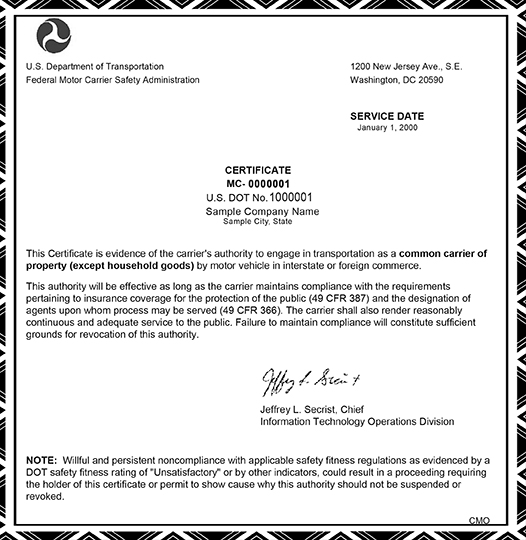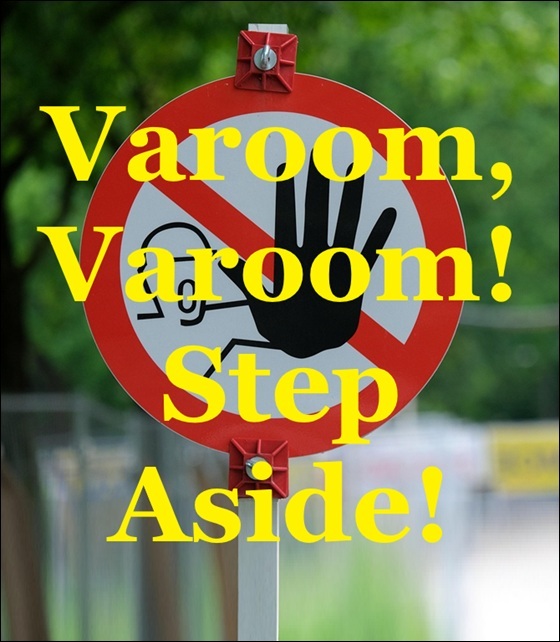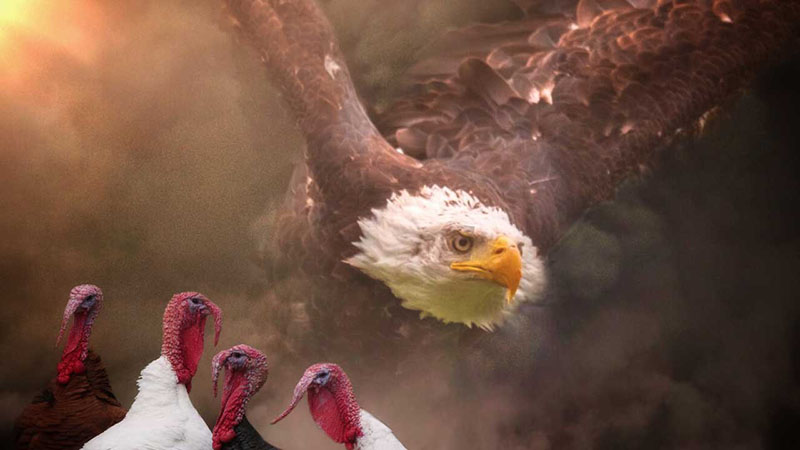Published: Wednesday, August 13, 2025

By Brian J. Riker
It seems like the towing industry faces new regulations daily, and while that is an exaggeration, there are some regulations that get fresh scrutiny after something happens to trigger a renewed interest from regulators. The US DOT number is one such item facing renewed interest due to a sharp rise in fraud related to fake motor carriers or legitimate motor carriers having their id stolen by bad actors.
What is a US DOT number?
Any business that uses commercial motor vehicles to engage in interstate commerce, meaning their trucks with a Gross Vehicle Weight Rating (GVWR) greater than 10,000 pounds, or the freight they haul (including cars), crosses a state or international border is required to register with the Federal Motor Carrier Safety Administration, which in turn issues a unique identification number that is then required to be displayed on all their power units used in interstate commerce. Many states also require anybody that operates a commercial motor vehicle to obtain a US DOT number even if they only operate intrastate, meaning their trucks, nor the freight they haul, ever cross a state or international border.
Do I Really Need One?
For most towing companies the answer is yes. This is because most of the tow trucks on the road today are at least 14,500 GVWR, with many well over that, and we routinely tow vehicles that are coming from out of state, will be going out of state after they are repaired, or we cross state lines ourselves. This is known as “interstate commerce” and, as such, requires at least a US DOT registration number.
Just because the vehicles are wrecked or disabled does not relieve the towing company of its obligation to register with the US DOT before engaging in interstate commerce. While wrecked or disabled vehicles, when towed from their primary point of disablement (where they first broke down or were wrecked) are exempt commodities, that exemption only applies to the operating authority portion of the federal regulations and some specific hours of service rules when towed at the request of law enforcement.
Types of US DOT Numbers
There are three classes of US DOT registration that apply to towing operations.
-- Private Motor Carrier of Property – Is exclusively for companies that only haul their own cargo or vehicles, i.e., if a product manufacturer owned trucks and hauled exclusively their own products, they would be a private motor carrier.
-- Exempt For-Hire Motor Carrier of Property – Hauls exclusively exempt commodities, which can include wrecked or disabled motor vehicles when only hauled form the place where they first broke down or were first wrecked.
-- Authorized For-Hire Motor Carrier of Property – Hauls stuff that is not exempt and belongs to other for compensation. This would include toolboxes, machinery, vehicles to the auction or other transport work.
What About Motor Carrier Authority?
If you haul anything other than exempt commodities, which are usually low value or unprocessed stuff like waste, rocks, dirt, etc., you will most likely need to obtain operating authority. Moving toolboxes, construction equipment, forklifts, sheds or even wrecked cars to the salvage auction usually requires operating authority in addition to a valid US DOT number.
There are two types of authority to investigate, interstate and intrastate. If the stuff you haul is coming from out of state, or going out of state, then you probably need for-hire interstate motor carrier of property authority from the FMCSA. This is commonly called an MC number, and can be obtained by applying to the FMCSA and obtaining the required insurance filings.
If your trucks, and the stuff they haul, never leave the state or country, and the final destination is not out of state or the country, then you are most likely an intrastate motor carrier of property. Each state regulates this differently, but most control this work through the Public Utility Commission or the Department of Motor Vehicles. Check with your state to see what, if any, registration and authority documents may be needed.
Why is Auto Transport Almost Always Interstate Commerce?
Those of you that haul for the auto auctions such as Adesa, Manheim, Copart or IAA may have noticed a recent trend is requiring you to have a US DOT number and/or interstate operating authority to renew or keep your contracts.
Vehicles going to or coming from the auctions are usually interstate in nature because of how the auctions market these vehicles to buyers globally. As such, the intent of their marketing effort is to sell the vehicle to any buyer, local or foreign, and as such, the intent of the shipment of the vehicle to or from the auction can be considered interstate in nature. This means; to legally provide transport services to these auctions, you must be registered as a for-hire interstate motor carrier of property.
The FMCSA is very clear in their guidance that automobiles, including wrecked and disabled vehicles going to or from an auction, are not exempt commodities. The companies that haul these vehicles must be fully qualified interstate motor carriers if the movement is interstate in nature.
It is a best practice for these auctions to require all transporters to be fully qualified interstate motor carriers since the nature of each vehicle hauled can vary and it would be a logistical nightmare to figure out if each vehicle was part of an interstate or intrastate regulated shipment before selecting a contractor to dispatch it to. They are simply staying on the side of caution to avoid any regulatory issues they may face by dispatching unqualified transporters.
Published: Wednesday, August 06, 2025

By Randall C. Resch
Headline News, June 2025
The Peoria (IL) County State’s Attorney’s Office has charged a sixteen-year-old and an eighteen-year-old with first-degree murder after they intentionally ran over two tow company employees—one of them a 70-year-old man who later died from his injuries.
In this brazen afternoon incident, the unauthorized teens entered the tow yard, jumped into a stored vehicle, and accelerated toward the gate. When employees attempted to stop them, they were struck as the vehicle crashed through the yard's gate.
While gate crashers have long been a concern, let this tragic event serve as a stark safety reminder for tow yard employees seeking to avoid dangerous situations.
Best Practices to Remember
Typical tow business hours are Monday through Friday, 8:00 AM to 5:00 PM. At the end of the day, business offices are considered closed. However, after-hours release fees may be collected from registered owners or their representatives—provided all documentation and police holds are in proper order.
Employees are reminded to always use appropriate security measures to protect themselves from attack or robbery. Unauthorized persons should never be allowed inside office or yard spaces unless an after-hours release is actively in progress. Aside from ADA accommodations, all individuals must remain outside the locked facility gates during vehicle release procedures.
Inside employees must ensure that all security doors are closed and locked. Tow operators may be summoned to complete after-hours releases. This process is essential to prevent the unauthorized removal of stored vehicles, theft, or unprovoked attacks on staff.
When bringing vehicles into storage, operators must first drive tow trucks (and vehicles) into the yard and ensure the exterior gate is fully closed and locked before offloading.
It is company policy to prohibit vehicle owners or their associates from entering the yard or office spaces. After-hours releases must be conducted one at a time, with individuals remaining outside the storage area until all paperwork is finalized and payments are collected and deposited according to drop procedures.
Once a vehicle is released, a tow employee should drive it to the facility’s street entrance to prevent any attempt at unauthorized retrieval from within the yard.
Avoid any altercations. If a situation becomes hostile or unsafe, call 911 immediately. Your safety comes first—do not put yourself in harm’s way.
Who’s ta’ Blame?
One vehicle, impounded by the Highway Patrol, had an “agency hold” placed on it for a host of reasons. During the night shift, a tow operator was delivering a different car to the yard. While inside the office completing paperwork, he carelessly left the gate open.
And wouldn’t you know it—someone took advantage. A stealthy driver spotted the open gate and seized the opportunity to liberate his car.
The tow operator heard an engine revving “varoom v’room,” followed by screeching tires. He got to the open gate just in-time to see the vehicle hit-the-street and disappear into the darkness.
As tow company employee, you know that when a vehicle is taken without authorization, you’re responsible for its departure if the gate’s left open? You know that heads are gonna’ roll for the very reason the vehicle’s owner took the car. And if the car was initially impounded for law enforcement actions, the agency will be upset that the yard’s security was far from acceptable?
When the tow operator called 911 to report the car “stolen,” the police dispatcher wasn’t concerned that the gate was carelessly left open. It took a while before a unit arrived to take a stolen vehicle report.
Initiate Specific Guidelines
Not knowing all the details, it’s unclear at what point the suspect driver gained access—during the process of release, or because the gate was unintentionally left open. Whatever the reason, companies should have solid, written employee guidelines regarding “what-to-do” scenarios, so as to prevent employees from being injured or killed.
My company’s written policy regarding facility security and safety is specific. Policy states:
“By contract, we are a secured facility. Unauthorized persons are prohibited from entering the facility at any time. Only approved customers may enter to conduct vehicle releases or obtain personal property while being escorted into the yard and back out.”
Additionally, “When tow operators arrive to deliver towed vehicles, the main gate will be closed and locked immediately to prevent potential robbery, unauthorized removal of impounded vehicles, or physical harm to the operator.”
Stand-alone policy: “Never stand in front of an escaping vehicle in an attempt to stop it!”
Securing Keys
Best practices suggest not leaving keys in stored vehicles.
Note: When vehicle owners or caretakers are liberating vehicles, they may already have spare keys. For individuals lurking in the darkness—intending to crash tow yard gates or cut fences with bolt cutters—there’s often little that can be done to stop their actions.
Companies should have clear, written policies that state: if someone is taking a vehicle from within the yard—let ’em go! In many states, “it’s not theft” to steal your own vehicle. Criminal trespass may be the minor issue, but felony assault, hit-and-run, or attempted murder are the major crimes likely to be committed in the process. Why risk getting killed over someone reclaiming their car?
If towers leave the gate open, the company will have some ‘splainin’ to do—especially if the vehicle was on an agency hold.
Facilities with questionable care, custody, and control procedures may face disciplinary action, including suspension or removal from contract.
Owners, in the best interest of employee safety, must ensure that staff know: don’t try to be a hero when these unfortunate and dangerous situations unfold.
Operations Editor Randall C. Resch is a retired, veteran, California police officer, former tow business owner and industry advocate. As consultant and trainer, he authored and teaches tow truck operator safety courses approved by the California Highway Patrol. For 55-years, he has been involved in the towing and recovery industry. In 29-years, he has contributed more than 775-safety focused articles for American Towman Magazine, TowIndustryWeek.com and is a frequent seminar presenter and beauty pageant judge at tow shows. In 2014, he was inducted to the International Towing and Recovery Industry Hall of Fame, was the 3rd recipient of the industry's "Dave Jones Leadership Award," and is a member of American Towman’s Safety Committee.
Email Randy at rreschran@gmail.com.
Published: Tuesday, July 29, 2025

By Brian J. Riker
A recently circulated email proposing that towers should be excluded from Federal Motor Carrier Safety Administration regulation, or at least placed into a special category, raises some interesting points to ponder. While it is unclear if creating a special category within the US Department of Transportation’s regulatory scheme would solve much, the thought process behind this deserves some consideration.
Currently, all towing companies are lumped into the general transportation market, no different than any other trucking company in the eyes of the regulators. This does pose some unique challenges related to compliance, especially around hours of service; however those are not insurmountable when managed properly.
Extreme caution must be exercised when asking to be regulated as a separate type of entity. This could potentially restrict many of the ancillary services currently offered by many towers, especially the heavy-duty providers.
One must ask, before deciding if this is a good idea or not, if your towing services were to be conducted under a separate US DOT registration, as some have proposed, would that mean you now need to have two registrations with the US DOT? One for towing, and one for all the non-emergency work you do like hauling equipment, moving toolboxes or even doing secondary tows?
After all, secondary tows really are not tows at that point, because the emergency nature of the request for service is gone; instead they are simple transports, that likely would be treated no differently than hauling a front end loader or having a car carrier trailer full of auction cars.
This is not just speculation. Until 2015, the US DOT allowed motor carriers to share work freely among other duly authorized motor carriers without any special registration, bond or other regulatory hurdles. Then, at the request of the trucking industry, in an effort to cut down on brokerage fraud, US DOT tightened the regulations around brokering. This change ultimately required a trucking company to register a separate entity, as a freight broker, to share work with other motor carriers in most cases.
This same dual entity concept would most surely apply to towing if towers were granted a special class of registration with the US DOT. P.S, towers, if you are currently sharing non-exempt calls with friendly competition or even sister companies, you may want to look into the regulations that came about after the MAP-21 Highway Bill in 2013. You may be a broker and subject to extreme penalties for just trying to cover your overflow work!
As for the merits of the concept of treating towing operation differently and raising the barrier to entry, both will help the industry survive long-term. Currently the towing industry is facing an insurance crisis, a rate crisis and a surplus of service providers that are resulting in extreme rate depression in most parts of the country.
Tougher entry requirements, such as mandatory training for company owners and individual operators, higher equipment standards, drug testing and special licensing will slow down the growth and weed out unprofessional operations. Mandatory special licensing requirements, such as those found in Texas, are necessary to create towing as a career, not just a job. Higher training and licensing standards also will reduce the potential for insurance claims, and we all know how bad the insurance market is right now, so that is a huge benefit.
If this concept is looked at through the lens of trucking prior to deregulation, i.e., the Motor Carrier Act of 1980, trucking was extremely profitable because there were limits on how many companies could service any given area and their rates had to be set at a level allowing for safe, legal and compliant operation plus a fair profit. Through this lens, more regulation is a good thing, as it will force the customers, law enforcement agencies and insurance companies to pay a fair and equitable rate.
As for insurance premiums skyrocketing, this type of higher barrier to entry would help tremendously because the loss ratios would decline when the professional towers were no longer being compared to the fly-by-night operators. This is the same concept as insurance captives, which must be very selective of their members to keep their operating costs low enough to be sustainable.
Everyone jumps on their fellow tower whenever something idiotic, illegal or just plain unsafe is posted on social media. The usual responses include “you drive your truck and I’ll drive mine” or “worry about your own business, let them do it their way”; however these are very shortsighted statements. If we, as an industry, don’t police ourselves and weed out the incompetent, unsafe and unprofessional operations, we will all pay the price for their failures as we are all lumped into the same group in the eyes of the public, regulators and insurance underwriters.
This industry is changing, and you can either lead the way or get left behind. If we, as towers, don’t take responsibility for raising our own standards—by supporting tougher entry requirements, improved training, and stronger regulatory oversight—we’ll continue to be judged by the worst among us. The choice is ours: do we soar with the eagles by embracing professionalism and reform, or flock with the turkeys by defending the status quo and tolerating unsafe, unqualified operators? The future of towing depends on which direction we choose.



































































































































































































































































































































































































































































































